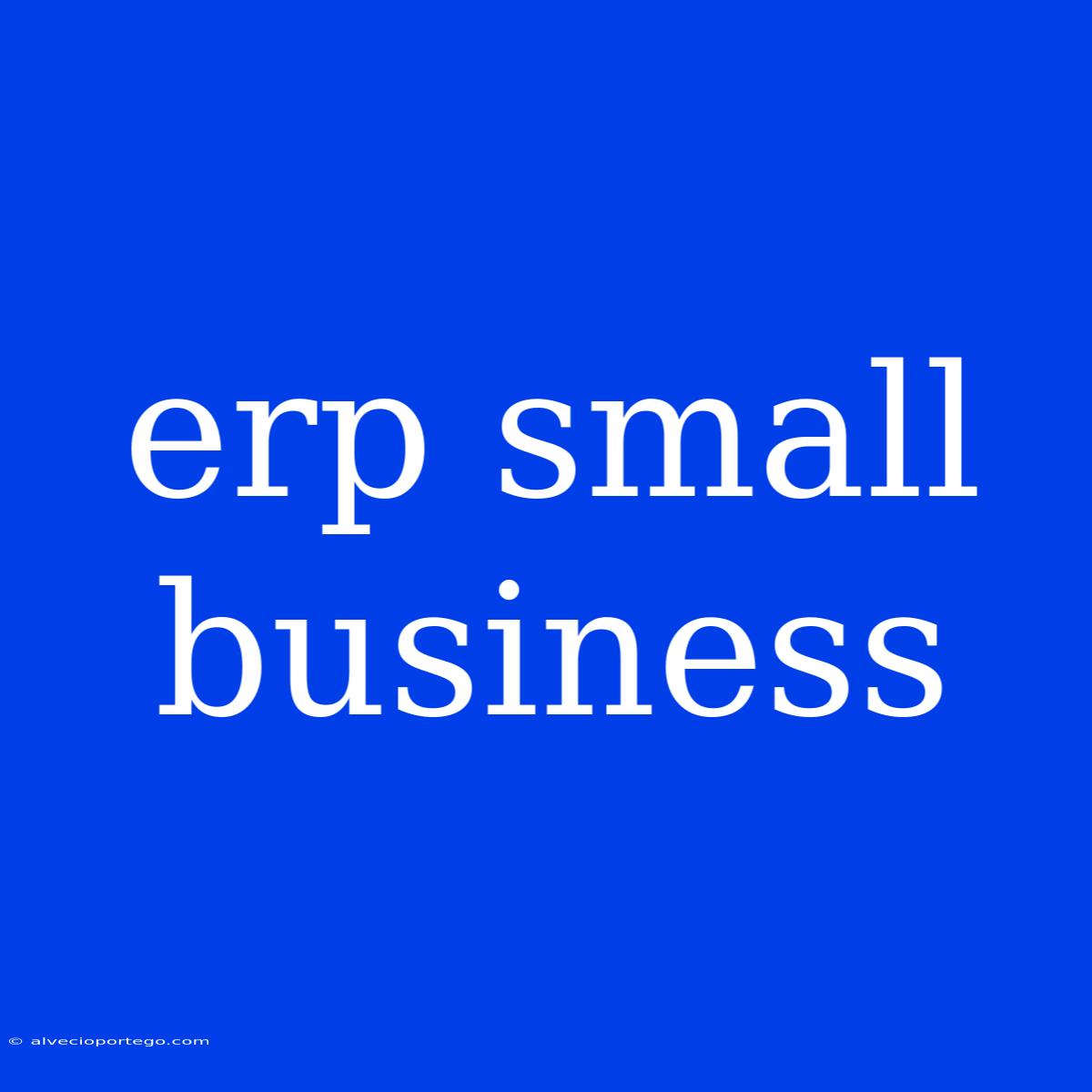ERP for Small Businesses: A Guide to Streamlining Operations
What is ERP?
ERP, or Enterprise Resource Planning, is a software solution designed to integrate various business processes, from accounting and finance to inventory management and customer relationship management (CRM). While traditionally associated with large enterprises, ERP systems are becoming increasingly popular among small businesses (SMBs) due to their ability to streamline operations, improve efficiency, and boost profitability.
Why Small Businesses Need ERP
- Centralized Data: ERP provides a single source of truth for all business data, eliminating inconsistencies and improving decision-making.
- Improved Efficiency: Automating tasks and processes reduces manual effort, freeing up valuable time for strategic initiatives.
- Enhanced Visibility: ERP offers real-time insights into business performance, allowing SMBs to track key metrics and make informed decisions.
- Better Customer Service: Integrated CRM features within ERP systems allow SMBs to personalize customer interactions and improve satisfaction.
- Scalability and Flexibility: ERP systems are designed to adapt as your business grows, allowing you to scale your operations seamlessly.
Key Features of an ERP System for Small Businesses:
- Accounting and Finance: Financial management, budgeting, reporting, and payroll.
- Inventory Management: Tracking inventory levels, managing stock, and optimizing purchasing.
- Sales and Marketing: Managing customer interactions, tracking leads, and automating marketing campaigns.
- Human Resource Management: Managing employee records, payroll, and benefits.
- Customer Relationship Management (CRM): Managing customer interactions, tracking leads, and improving customer satisfaction.
Choosing the Right ERP System:
- Identify Your Needs: Determine the specific business processes you want to improve.
- Budget Considerations: Establish a clear budget and explore different pricing models.
- Cloud vs. On-Premise: Decide whether a cloud-based or on-premise solution is suitable.
- Scalability and Flexibility: Ensure the system can adapt to your future growth.
- Integration with Existing Systems: Consider compatibility with your current software infrastructure.
Benefits of Implementing ERP for Small Businesses:
- Increased Productivity: Automating processes and reducing manual tasks frees up employees for more strategic work.
- Enhanced Collaboration: Improved communication and information sharing across departments.
- Improved Decision-Making: Data-driven insights support better business decisions.
- Reduced Costs: Streamlined operations lead to lower expenses.
- Competitive Advantage: Stay ahead of the curve by leveraging technology to optimize business processes.
Conclusion:
ERP systems offer SMBs a powerful tool to streamline operations, improve efficiency, and drive growth. By carefully evaluating their needs, choosing the right system, and effectively implementing it, small businesses can unlock significant benefits and gain a competitive edge in today's dynamic marketplace.

